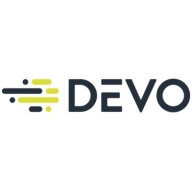

Pandora FMS and Devo compete in the monitoring and analytics platforms category. Devo seems to have the upper hand with its advanced analytics capabilities despite Pandora FMS's cost-effectiveness.
Features: Pandora FMS offers flexible customization, comprehensive monitoring tools, and adaptability to different infrastructures. Devo provides powerful real-time analytics, extensive data ingestion capabilities, and integration with various data sources for deeper insights.
Room for Improvement: Pandora FMS users suggest improvements in reporting features, initial setup, and user interface customization. Devo requires enhancements in documentation, a streamlined onboarding process, and improved user interface navigation.
Ease of Deployment and Customer Service: Pandora FMS benefits from a supportive community and responsive support, easing deployment efforts. Devo, while consistently updating its platform, needs more intuitive customer support and often faces deployment complexity issues.
Pricing and ROI: Pandora FMS presents an appealing pricing model with positive ROI feedback, especially for SMBs seeking affordable monitoring solutions. Devo, with a higher price point, justifies its cost through superior analytics features, resulting in favorable ROI for enterprises requiring extensive data analysis.
| Product | Market Share (%) |
|---|---|
| Devo | 0.7% |
| Pandora FMS | 0.3% |
| Other | 99.0% |


| Company Size | Count |
|---|---|
| Small Business | 7 |
| Midsize Enterprise | 4 |
| Large Enterprise | 11 |
| Company Size | Count |
|---|---|
| Small Business | 11 |
| Midsize Enterprise | 4 |
| Large Enterprise | 3 |
Devo is the only cloud-native logging and security analytics platform that releases the full potential of all your data to empower bold, confident action when it matters most. Only the Devo platform delivers the powerful combination of real-time visibility, high-performance analytics, scalability, multitenancy, and low TCO crucial for monitoring and securing business operations as enterprises accelerate their shift to the cloud.
Pandora FMS is a monitoring as a service (MaaS) solution that is ideal for companies with at least 100 or more devices. Instead of multiple, difficult-to-integrate monitoring systems, Pandora FMS is an all-in-one solution that is easy to use. The software is able to untangle complicated technology infrastructures to easily identify the root cause of issues in order to find the most efficient solution. It does so by analyzing everything in your system, from databases and applications to services and desktops, as well as communications.
Pandora FMS Features
Pandora FMS has many valuable key features. Some of the most useful ones include:
Pandora FMS Benefits
There are many benefits to implementing Pandora FMS. Some of the biggest advantages the solution offers include:
Reviews from Real Users
Below are some reviews and helpful feedback written by PeerSpot users currently using the Pandora FMS solution.
PeerSpot user Marc C., Systems Analyst at a university, says, "It is easy to create your own custom modules if you just know a little bit of scripting. If you have unique requirements, you can just make your own modules. You can even grab checks from other vendors. There are open-source checks for various things such as SMTP, etc. It is really flexible. It is reliable. It does the job, and it alerts. It is also surprisingly feature-rich. It is very mature for a not-so-known product."
Another reviewer, Alexandre J., comments, “What I value most about Pandora FMS is the simplicity of working with it. The speed of locating problems and to be able to solve them quickly, so that it affects our client's network infrastructure as little as possible, is very valuable.
Thanks to Pandora FMS we have everything unified in the same point and it is highly efficient.”
We monitor all Log Management reviews to prevent fraudulent reviews and keep review quality high. We do not post reviews by company employees or direct competitors. We validate each review for authenticity via cross-reference with LinkedIn, and personal follow-up with the reviewer when necessary.